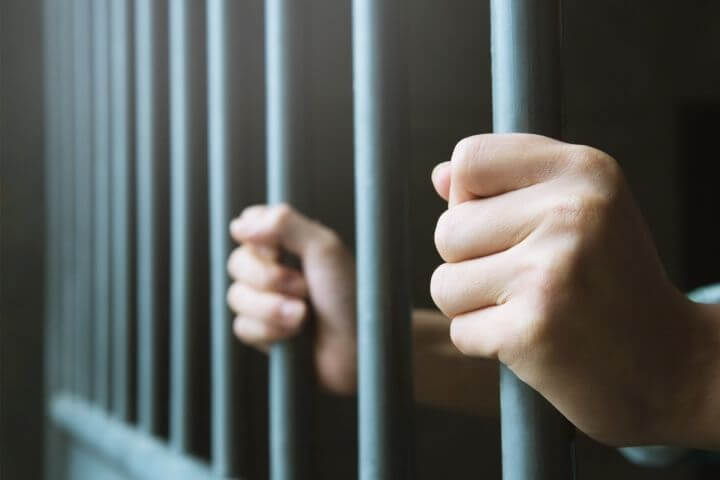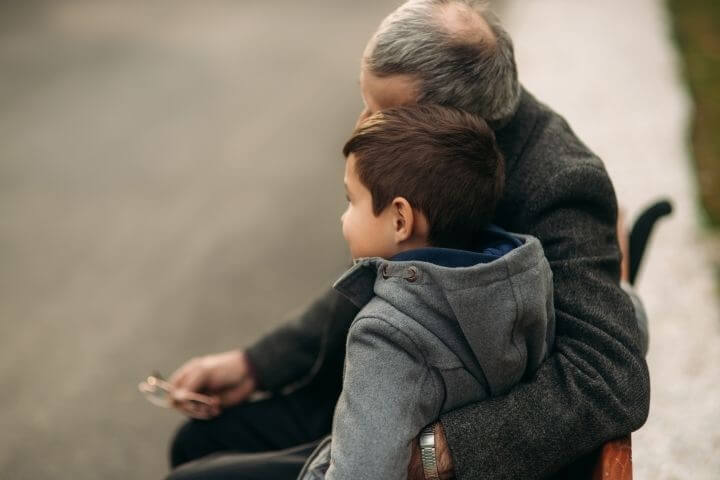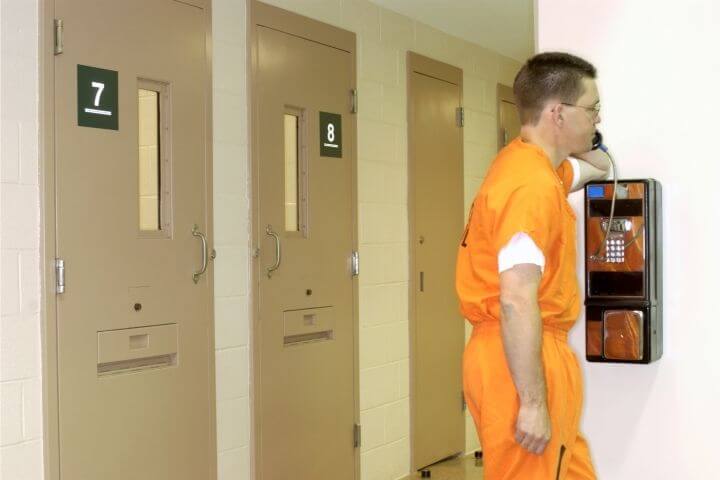If your child has been convicted of a crime and is going to spend some time in jail you’re likely worried about what is going to happen to your grandchildren while they are in jail.

The rights of the grandparents when a parent is in jail will depend a lot on the individual situation, and there isn’t a clear cut answer for everyone.
There are some general guidelines that may be able to help you figure out what to do and what they next steps are going to be for you.
Contents
The Number One Priority
While you may be struggling with your feelings towards your child spending time in jail, the priority here is that the children involved are taken care of and their needs are met.
So next, how do you stand up for the rights and best interests of your grandchildren while their parent is in jail? Well there are a few things to consider for your unique situation to help determine what the best course of action is.
Who Is Incarcerated?
While it may seem a little unfair, if their mother is incarcerated then the actions taken are a little different than if their father is.
Overall, families tend to take a much harder hit when the mom goes to jail than when the dad does. This is because women are much more likely to have been providing the majority of the caring role in the family and they are just as likely to be providing financially for their families.
Additionally, there are fewer women’s prisons because women tend to be incarcerated less often. This means they are likely to be serving their time in jail further from home and it makes it harder for families and children to visit during this time.
There is also significant impact to the family when a father is in jail, and grandparents often feel that impact when either parent is facing this for any significant amount of time.
What Are Your Rights to Your Grandchildren During This Time?
Depending on who is incarcerated and their relation to you (is your son/daughter or is it your child’s partner that is in jail).

It will also depend on the ability and willingness of the other parent (if they are involved in their child(ren)’s life) to care for the children during this time.
If the incarcerated parent is a single parent and they are your child, you will probably be able to take custody a little easier.
If the parent going to jail is not a single parent, and the other parent is involved in the child(ren)’s lives then you may not be able to be the primary caregiver of your grandchild.
Now, if you believe that the parent who is not in jail is not able or willing to take care of the children in a way that would serve them best you can file legal action to become the primary custodian of the children.
If you go down this road, though, be really sure before you do that. You can always start legal proceedings but once you start it there could be irreparable damage to the family relationship going forward.
In every case, you should try to work with the parent who is caring for your grandchildren now so that they are more open and willing to you being involved.
If you just come in with legal proceedings and acting like you’re going to take away their kids then chances are they’ll get defensive.
With their partner in jail, it’s not going to be an easy time for them to get through. They will need your help. So as much as possible, work with them and offer your help as much as you can. Only take legal action when necessary and in the best interest of the child(ren).
Stepping up to Take Care of Your Grandchildren
When your child is facing some jail time, it’s a natural reaction to step up and say that your grandchildren can stay with you.
You don’t want to see your grandchildren spending time in foster care or with other family members who may not want to really take care of them.
Being a grandparent and raising children for an extended period of time is not going to be an easy task but it may be worthwhile for you to consider this, for their best interests.

Many children whose parents go to jail and they are place in the foster system (even temporarily at the time) will never be reunited with their biological family and are even far less likely to be adopted before they age out of foster care.
The best situation for the children, in hopes of them going back to their parents care when their parent is out of jail, is for their grandparents or another close family member to take care of them for this time.,
One of the hardest things about taking on the role of a full-time parent for your grandchildren is going to be the questions being asked. Many times family members don’t want to really talk about their loved one going to jail, but when grandchildren come to live with you there is bound to be questions about why they are there and how long they’re staying.
Should You Bring Your Grandchildren to Visit Their Parent in Jail?
As a caregiver, one of the biggest issues you’ll face is whether to bring your grandchildren to visit their parent while they are in jail.
The answer to this will largely depend on the kind of relationship they had with their parent prior to them going to jail.
It’s generally thought that if the parent was largely involved in the life of the children prior to this incident happening then every effort should be made to maintain that relationship.
Now if the parent has really not been involved in the child(ren)’s life in any real meaningful way then trying to make them have a relationship while the parent is in jail may not be the best time to try and make this happen.
Many parents may not want their children to see them while in jail because they think it will give their children a negative impression of them. This isn’t always the case though – children often don’t think less of their parents when seeing them in jail they’re really just happy to see them.
Maintaining Their Relationship With Their Parents
If visits are not possible (due to distance or other barriers) it will be important to find ways to maintain the relationship with their parents.
Some prisons now allow for inmates to communicate with their families via tools like Skype. If that’s the case, and your grandchildren want to, it will be important for you to help them set this up so they can talk to their parent.

Additionally, it’s encouraged to continue to send cards, pictures and even report cards to their parent – whatever they want to share with them during the time they are in jail.
When the Parent Is Released From Jail
It’s really important, and has been shown beneficial, for inmates to have contact with their family during their time in jail.
Inmates with strong family connections have been found to be more successful after being released. They are more likely to be able to find a job and are far less likely to re-offend in the future.
When the day comes that your child is released from jail and your grandchildren get to see their parent again, it will be an emotional day.
After months or years of taking care of your grandchildren, you may be a little hesitant to relinquish complete care of them.
Now if the courts or any kind of social services have been involved in placing the children in your care then they will make the decision as to if/when the children should go back into the care of their parent.
If the arrangement set up was informal and there wasn’t any paperwork involved then the return to their parent’s care may be a little more difficult to determine.
You don’t want to make your child feel like they are incapable of taking care of their children, but you also want to make sure the children are cared for and their needs are met.
No matter how you proceed, it’s important to be cautious. You don’t want to get into a power struggle with your child because they could very easily remove your ability to visit with your grandchildren.
If your child decides to deny you any visitation or access to your grandchildren it can be very upsetting to the children, who have already had enough upset in their life.
Do you best to work with your child so that they feel as though you’re trying to help them get back on their feet and you’re really looking out for their best interests.
Dealing with your child going to jail is going to be a really hard time in your life, and you may feel like you’re struggling on your own with this. Their children will also be feeling this struggle and don’t really know what to do when their lives are turned upside down.
As much as possible, be there for your grandchildren during this time – they will need you.
